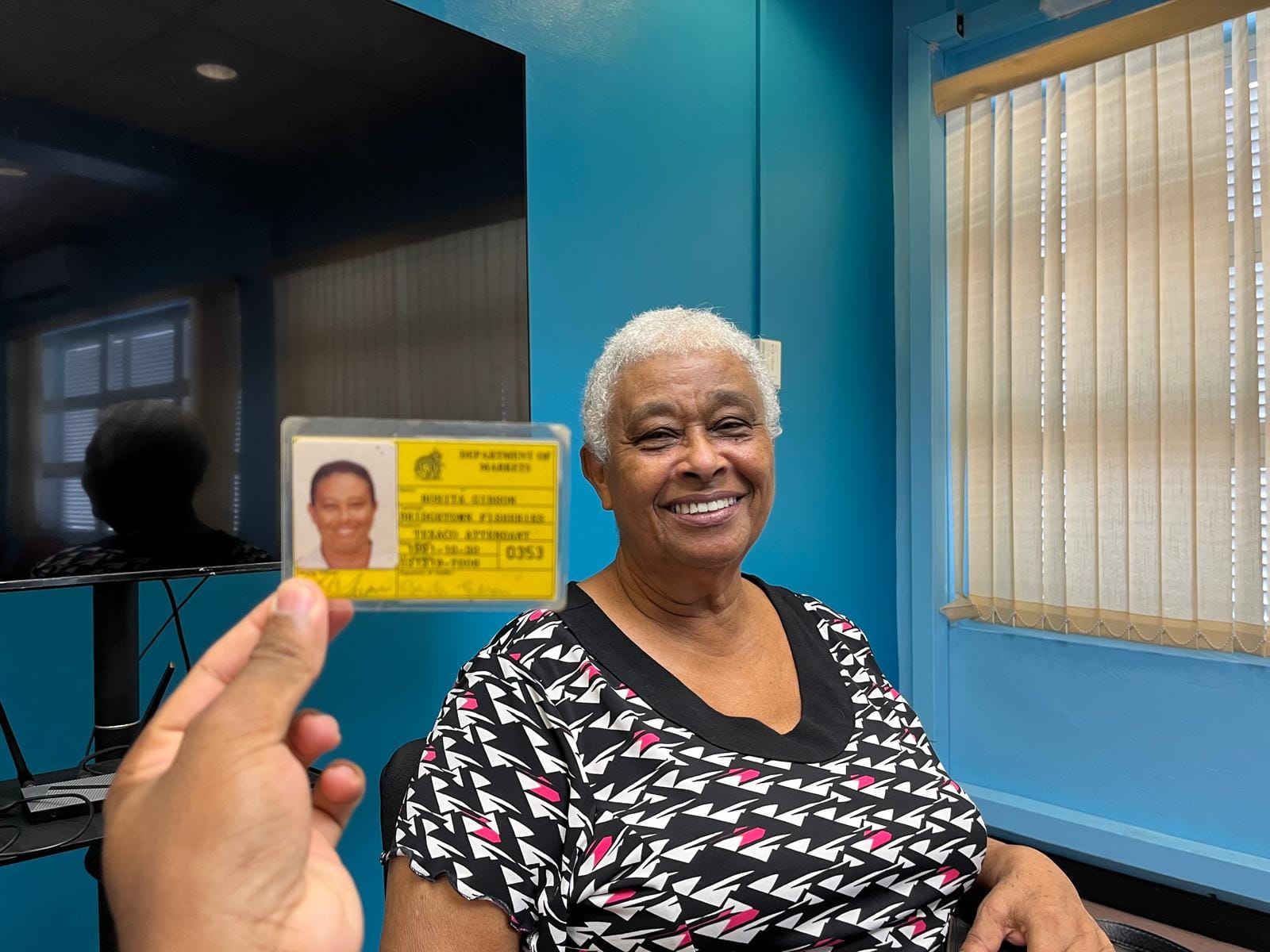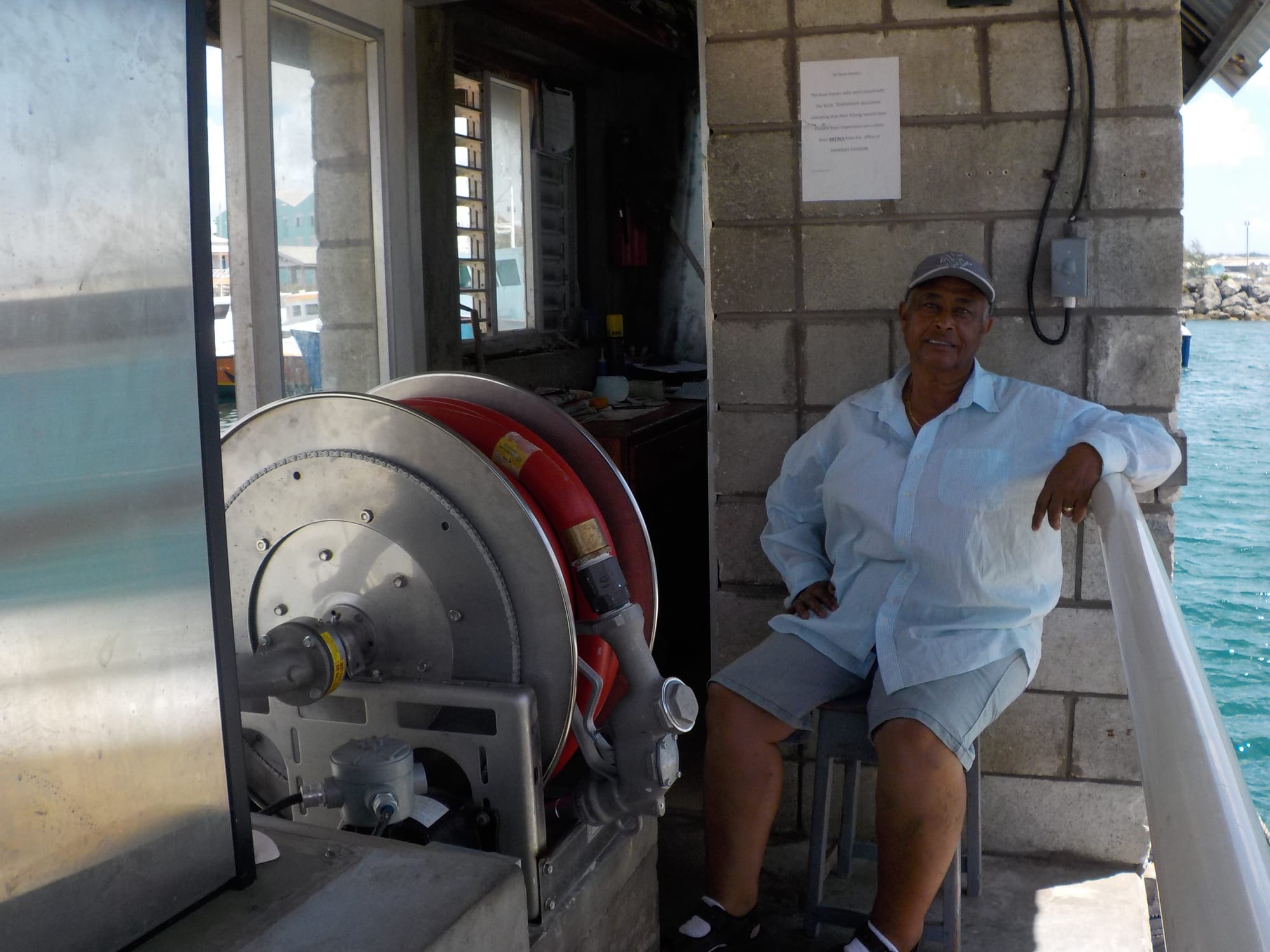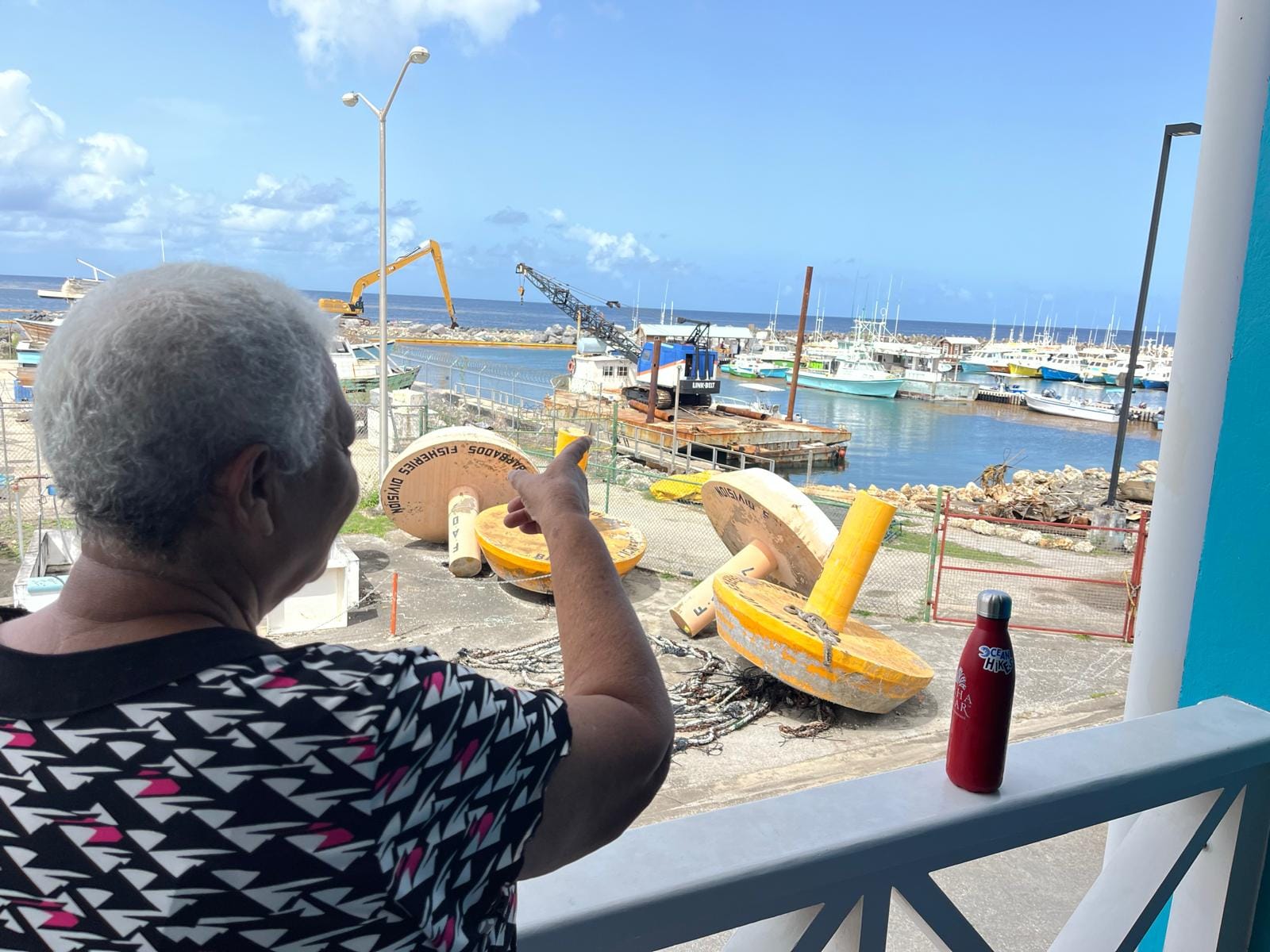Written by Kyle Foster
For over 30 years, Rosita Griffith fueled the Barbados Fishing Industry, though everyone knew her as just Rosie, Aunty Rosie, or sister. Starting through William Ince at Cavans Lane in 1986, which had a small diesel tank, Rosie sold fuel seven days a week to day boats such as moses and launches; servicing the occasional ice boat. As Rosie was the only person working at the facility, she was in charge of taking account of everything at the site and taking the money to the bank. It would be ten years after starting the job before Rosie took her first vacation, stating that the love for her job and the fact that she was young with much stamina made her forget all about taking a day off.

Two years later after starting at Cavans Lane, Rosie moved to the newly built Bridgetown Fisheries Complex (BFC), which she attributed to the likes of drinking champagne compared to her former place of work. It was a much more modern and secure facility, complete with baths and toilets. There was a wider variety of vessels as well, with larger boats berthing there, Rosie serviced more ice boats and longliners as well. One of her favourite parts of the job was interacting with the fishermen. Of course, this was not for the thin-skinned. Rosie always demanded respect, which she equally showed to those around her. She is of the firm belief that you must respect people regardless of who they are or where they come from.
She was respected so much, in fact, that the jetty on which she worked became affectionately referred to as "Rosie's jetty", as it is still known today after her retirement.
Changes throughout the years
When Rosie first started at Cavans Lane, the price of diesel was 35 cents a litre, and at the end of her career it was north of $2. Simultaneously, when she first began, an ice boat would take between $500-600 in diesel, but now they spend anywhere between $3,000-4,000 before they are full. The most fuel she ever recorded for a vessel was over $10,000 worth. Unfortunately, all of this information was lost to Hurricane Beryl.
Catches were also much more plentiful, with Rosie noting that flyingfish once sold for $8-10 per hundred fish.
Working in this part of the industry encouraged her to invest in her own vessel. With a letter from her boss, she was able to go to the bank and invest in a locally crafted boat, noting it was much easier then to purchase a vessel at the time, as there weren't as many steps required back then.
Rosie also vividly remembers the evolution of Barbados' fishing vessels during the late 80s into the early 90s, noting that as people started to notice that more fish were being caught, and as the knowledge of boat building grew, there was a demand for bigger boats. Day boats were also modified to have ice boxes, to allow boats to stay out longer than before and catch more fish, and eventually, ice boxes were built into boats constructed afterwards. Many people still preferred wooden boats over fiberglass at this point, but the transition was beginning. Fiberglass was seen as more resilient, needing less maintenance and repairs and boats of this material did not need to be hauled out as often, and ultimately was a better investment.
Rosie also remembered fondly seeing grandparents and parents who owned boats taking their children out fishing during weekends and long holidays. These children, such as Jonathan Jones and Balloon Boy, grew up to be some of the many captains and boat owners we know and depend upon today in the fishing industry.
Her career didn't only revolve around fueling vessels, as she often effectively acted as an ambassador from Barbados, teaching various tourists from the likes of Germany to Israel who docked in the BFC how to catch the bus and places of interest on the island to see.

Of course, despite being retired, Rosie still has deep roots in the fishing industry, as her family owns boats. Therefore, she was there in the aftermath of Hurricane Beryl, describing the complex as unrecognizable, as if flattened by a tsunami. The smell of diesel could've poisoned you, and after drying her tears after witnessing the devastation, she had to "pick her step" as she made her way through the Complex.

In encouraging young women who are interested in getting into the industry, Rosie advises people to be respectful and obedient, as these qualities take you a long way. She also says it's important to love what you are doing, as once you do, half the work is done already.
The Barbados Fisheries Division takes great pleasure in highlighting the hard work and dedication Rosie put into the fishing industry throughout the years, fueling the fishing industry both literally and figuratively for more than 30 years. We thank Rosie for all she has done, as she has certainly left an unforgettable mark upon the fishing industry in Barbados.
Cover photo credit: Pamela Burke

